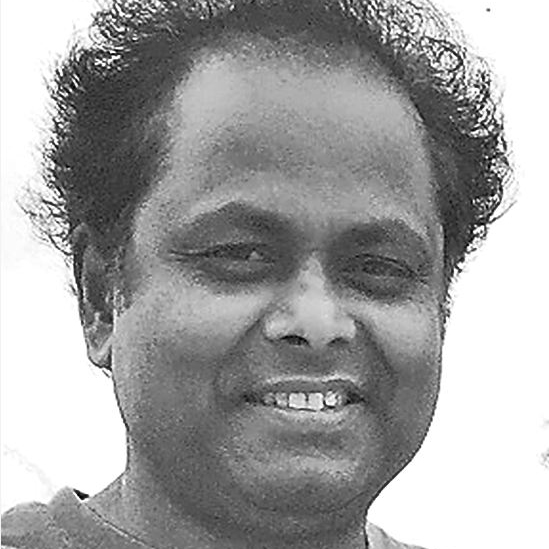Opinion
Complex problem, complex approach
This election has been an opportunity to politicise people, both by boycotting it and by vigorously campaigning for it
Pramod Mishra
The excitement of local elections has reached my village in east central Morang in a big way. Where there used to be barely two or three bicycles in the entire village, now about a dozen motor cycles raise the gravel dirt many times a day as they carry electioneering banners and flags of various parties.
Except for the Rastriya Janata Party-Nepal (RJP-N), every other party, including the Rastriya Prajatantra Party (RPP) with grizzled former Panchayat officials, have candidates in this local election. Door-to-door canvassing on behalf of one’s party, private gossip about the real and open intent of this or that party, get-togethers and election talk at tea shops during the day, and fried chicken, vodka or beer in taverns or private homes at night has fuelled the pre-election atmosphere.
Hungry for politics
People are indeed hungry for some drama, some competition, and political parleys. The local election has provided the villagers with an opportunity to visit surrounding villages and strike up conversations about politics and the chances of winning or losing. Indeed, the ancient Greek philosopher Thucydides’ idea of politics can be seen in action in my multi-ethnic, multicultural, multilingual village. According to Thucydides, politics is an activity among groups of people at various levels—from the neighbourhoods in villages, to districts, to provinces, all the way to the central level—to negotiate power.
This is what is happening in my village these days. But in the present context—with a controversial constitution and the RJP-N, a major cluster of Madhesi parties, opposing this election and other Madhesi parties such as Upendra Yadav-led Sanghiya Samajbadi Forum-Nepal (SSF-N) participating in it, how can we read this election? What does this local election mean for national politics? More importantly, is this electioneering an endorsement of the present constitution?
I was in my village on the day when candidates were nominated. I found everyone of any significance at the nomination centre, Dayaniya. They seemed to have forgotten that the RJP-N was boycotting the election; it was as though people were hungry for political activities. Once they were given political activities to follow, they did not want to miss them.
People in the Madhes have become highly politicised; their hyper-activity during this local election period is a reflection of that. But the Nepali political class will be sorely mistaken if they take participation in this election as an endorsement of their flawed constitution or their regression.
Common agenda
Nepali national politics has turned into a mess over the issue of state transformation. And the agenda of the transformation appears ever more difficult than before. Beginning with the first Constituent Assembly in 2008 to the drafting of the constitution during the second Constituent Assembly and after, events have demonstrated that the transformation of the Nepali state will be even more challenging than the abolition of monarchy. It is going to be a long haul. Quick fixes or short-term strategies by one group or another are not going to dismantle the current sedimented Nepali state that has been forming for over two centuries.
In order to prepare for the long haul, Nepal’s transformative forces will need to form alliances and join hands to employ both long-term and short-term strategies. These strategies will harness the energy of political activities like those seen in my village during this local election and the energy that the RJP-N supporters have shown and sustained since the first Madhes movement. In other words, both the street and the ballot box need to become a tool for the politicisation of the Madhesi population and the transformation of the Nepali state.
So, when I hear Madhesi parties and their supporters squabbling among themselves over whether Upendra Yadav or the RJP-N is right and embarking on campaigns to denounce and defame one another, I feel they are wasting their precious energy rather than using it constructively. They are acting the same way they did during the first CA, when they could not reach common ground. This ultimately resulted in distrust among their constituencies. Instead of focusing on their differences and exaggerating them to undermine each other, they should concentrate on the common goals and agenda that would take them successfully to their destination.
Possibility of a setback
The different stances Upendra Yadav’s SSF-N and Mahant Thakur’s RJP-N hold with regard to the local election is one example. In my view, both positions contribute to the Madhesi campaign.
Given Upendra Yadav’s constituency eastward of Sunsari and his need to connect with Janajati groups, and given the repeated failure of the Nepali Congress and the Maoist Centre to muster a two-third majority to amend the constitution, one strong way to change the equation is to go to the Madhesi population, including Janajatis, Muslims and Dalits, and inform them about the CPN-UML’s anti-Madhesi, anti-transformative stance and caution them about the NC and the Maoist Centre’s half-hearted approach. The door-to-door (ghar-dailo) campaign affords them a golden opportunity to do so.
On the other hand, the RJP-N’s stance of boycotting the election until the constitution amendment happens is also right, given the anger, frustration and violence that its constituency westward of Saptari has experienced and given the desperation of the status quoist forces to seek legitimacy for the flawed constitution. If the RJP-N caves in, it will be the end of the matter in the short term. And it will be a great setback for the marginalised, because if the Madhes succeeds in getting its rights, the rest of the marginalised will succeed in getting theirs. Therefore, the Madhes campaign must not fail. But for it to succeed, a complex approach is necessary, for only such an approach can solve a complex problem—the transformation of the Nepali state.
This local election is not an endorsement of the present constitution. If anything, this election has become an opportunity to politicise the population, both by boycotting it and by vigorously campaigning for it. But it is certainly an endorsement of competition and an exchange of ideas, of drama and of politics. Among Madhesis, Janajatis and other marginalised groups, it is an endorsement of a process of assessment as to who is on their side and who is against them. It is a warm-up for the big election for Parliament.




 9.7°C Kathmandu
9.7°C Kathmandu










